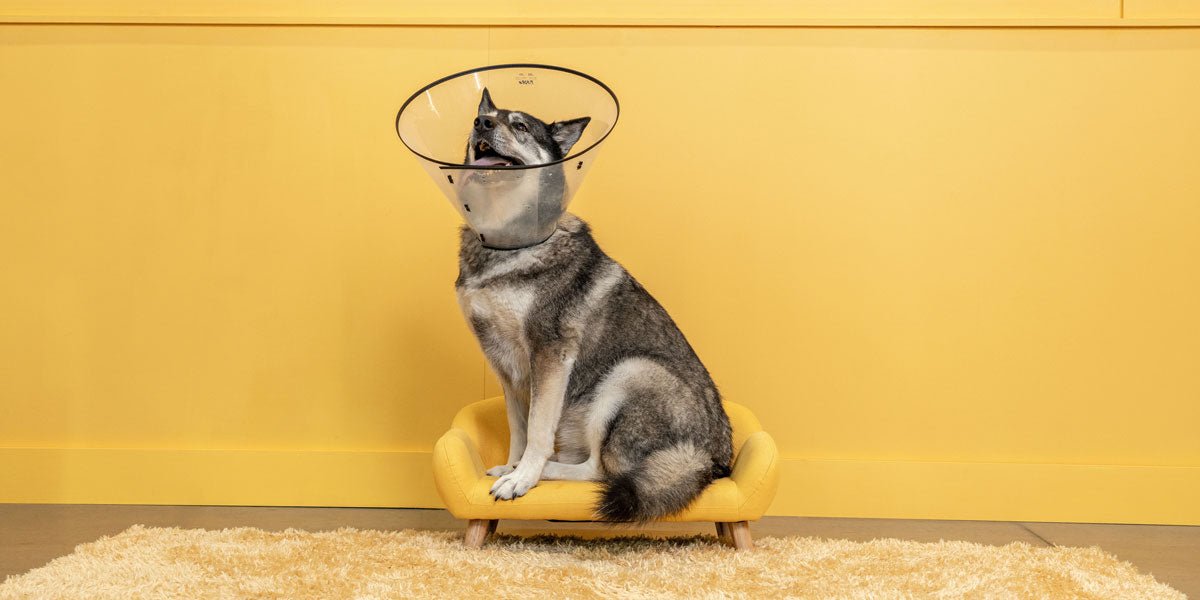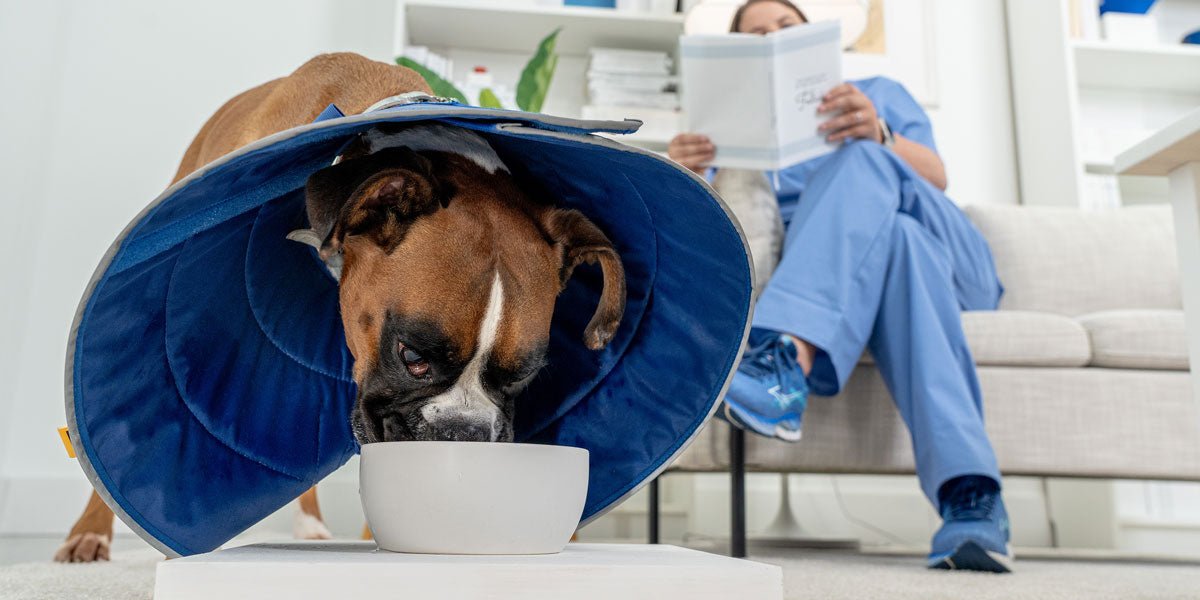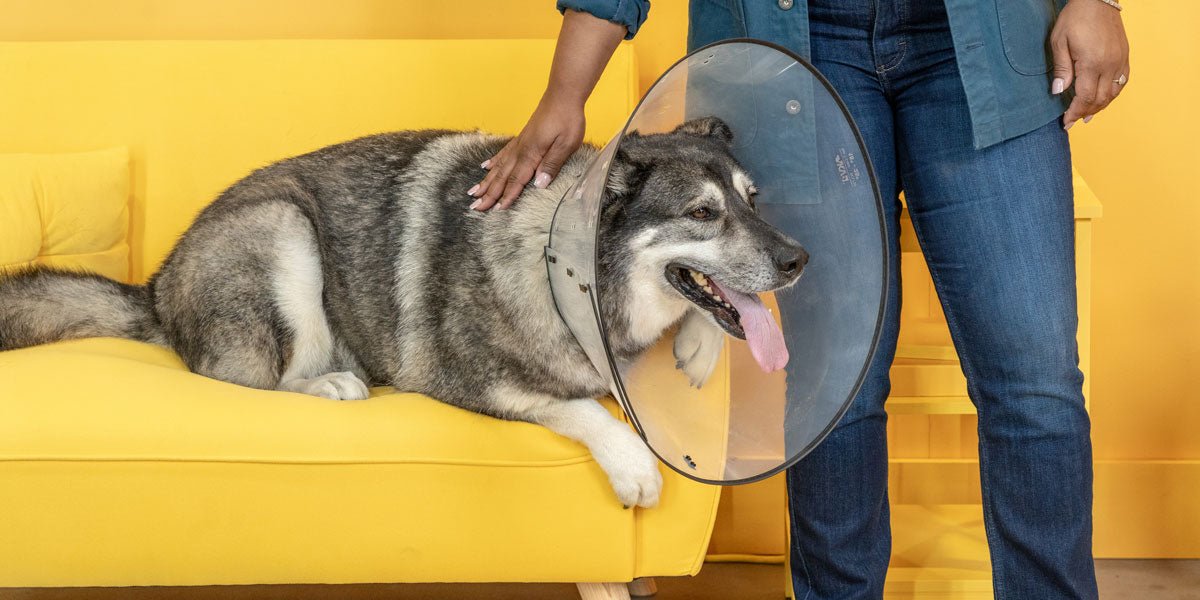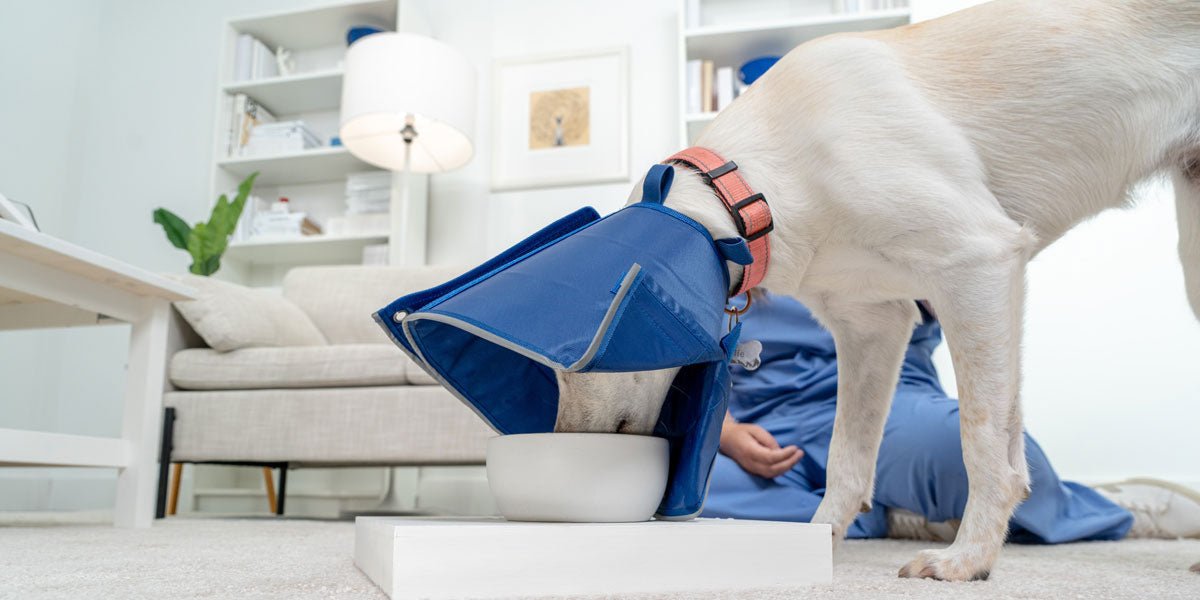Does the Cone of Shame Stop Dogs from Scratching?
Which Recovery Collars Actually Work—and Which Ones to Trust If your dog is scratching at their ears, face, or healing skin, you may be wondering: Does the cone of shame actually stop dogs from scratching? And more importantly, which kind of e-collar works best? The answer isn’t one-size-fits-all. While traditional cones can block access to certain areas, not every style prevents scratching effectively, and the wrong fit or shape can leave your pup frustrated and unprotected. In this guide, we’ll break down when e-collars help with scratching, what to look for in a recovery collar, and which KVP International e-collars are designed...
Can My Dog Play in the Cone of Shame?
How to Keep Playtime Safe and Healing on Track If your dog is wearing the infamous “cone of shame,” you’re likely dealing with a wound, hot spot, surgery site, or skin condition that needs time to heal. But that doesn’t stop your pup from wanting to play! So you may be wondering: Can my dog still play with the cone on? The short answer is yes but with care. Play is important for mental stimulation and emotional wellbeing, but during recovery, not all activities are safe. In this post, we’ll explore how to play safely with your dog in an e-collar, what...
How to Put on the Cone of Shame (Without the Drama)
First-Time Tips for Helping Your Dog or Cat Adjust to an E-Collar The first time your pet wears the “cone of shame” can feel a little dramatic, for everyone involved. Whether you’re dealing with a curious kitten, a nervous pup, or a grumpy senior pet, introducing an e-collar for the first time takes a bit of patience, planning, and compassion. In this post, we’ll walk you through how to put on an e-collar (a.k.a. recovery cone) the right way, why some pets react with fear or resistance, and how to help your dog or cat adjust to their new “accessory”...
Can My Dog Eat or Drink in the Cone of Shame?
Featuring the KVP Calmer™ E-Collar – A Gentler Way to Heal If your dog has ever had to wear the “cone of shame,” you know it comes with a lot of questions, andddd a fair share of guilt. One of the most common concerns we hear from pet parents is: “Can my dog eat or drink while wearing their e-collar?” The short answer: Yes—but not all cones are created equal. In this blog, we’ll walk you through how eating and drinking works with traditional cones, when it might be a problem, and how modern alternatives like the KVP Calmer™ E-Collar are changing the...




